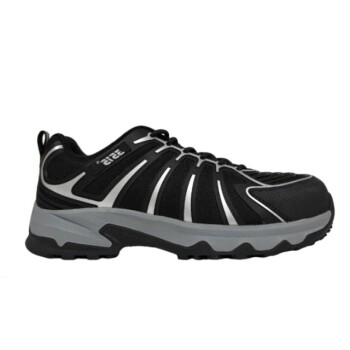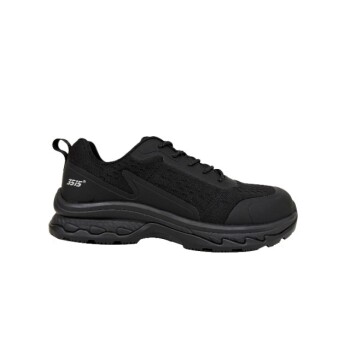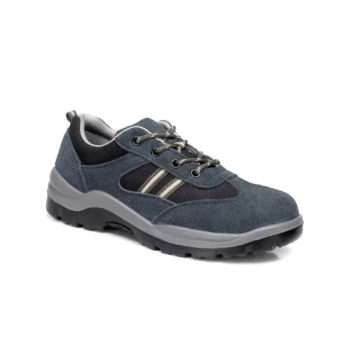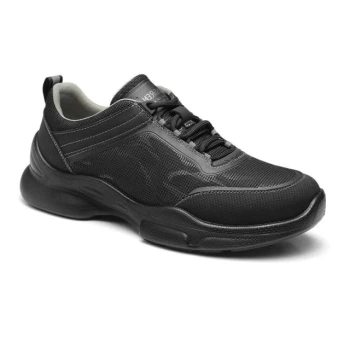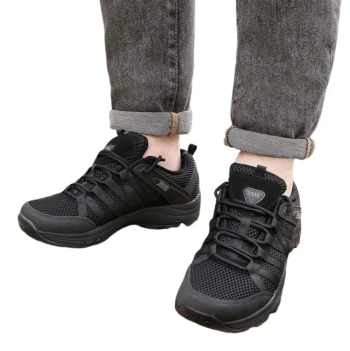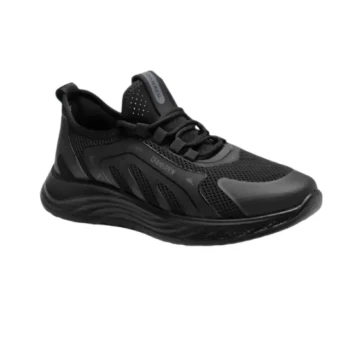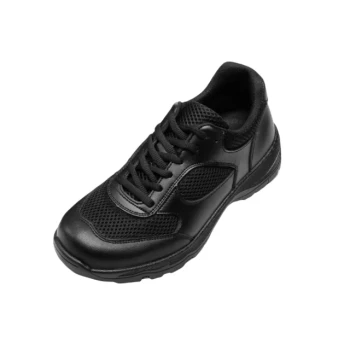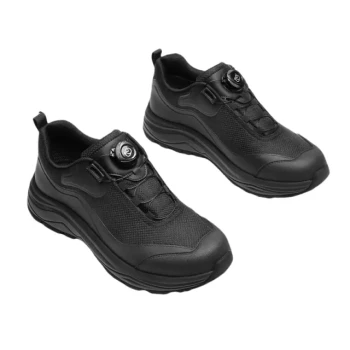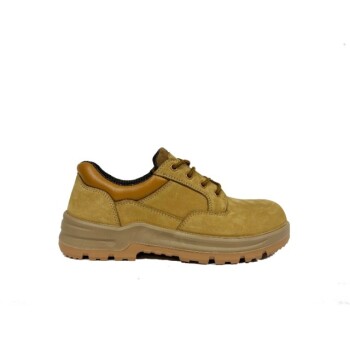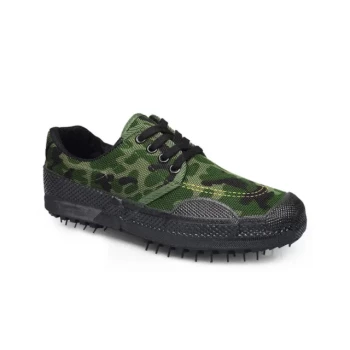Choosing a shoe with a firm foundation is critical because it directly dictates your body's stability and alignment. Just as a house built on soft ground will become unstable, your body becomes wobbly and off-kilter when your shoes have a mushy, unsupportive base. This instability can create a chain reaction of stress that travels from your feet up through your legs and back.
The core principle is that a shoe's foundation should support your foot's natural structure, not collapse under it. A firm, stable base prevents harmful misalignment and provides the balance necessary for everything from standing to high-impact activity.
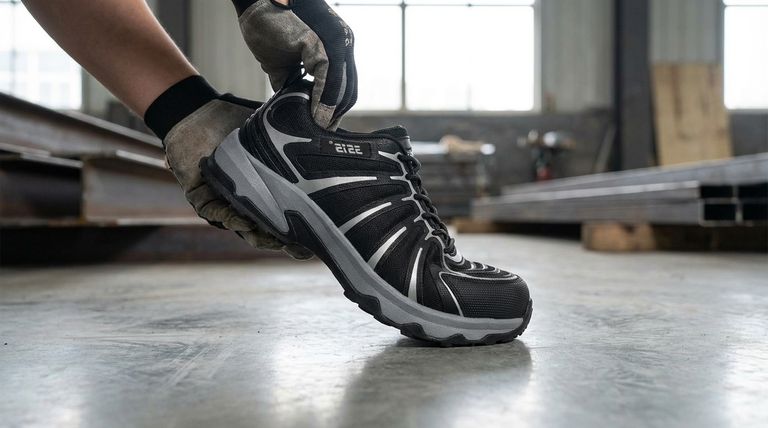
The Foundation's Role in Body Mechanics
A shoe is not just a covering for your foot; it is the primary interface between your body and the ground. Its structure has a profound effect on your entire musculoskeletal system.
Your Feet as the Body's Base
Think of your body as a building. Your feet are its foundation. If that foundation is placed on a soft, shifting surface—like an overly cushioned or flexible shoe—the entire structure above it must constantly work to stay balanced.
This constant micro-correction leads to muscle fatigue and can strain your joints over time. A firm foundation provides a solid, predictable base, allowing your body to remain stable and aligned with minimal effort.
Arch Support as a Key Stabilizer
A critical component of a firm foundation is proper arch support. The arch is your foot's natural shock-absorbing mechanism.
Shoes with built-in arch support help maintain this structure, ensuring stability and balance. In contrast, completely flat-soled shoes can allow the arch to collapse, leading to pain and misalignment.
Preventing a Cascade of Misalignment
When a shoe lacks a firm foundation, the foot can roll inward (overpronation) or outward (supination) excessively. This initial instability doesn't stop at the ankle.
This misalignment can force your knees, hips, and lower back to compensate, potentially leading to pain and chronic issues in those areas. A stable shoe helps keep your foot in a neutral position, protecting the entire kinetic chain.
How to Identify a Firm Foundation
You can easily test a shoe's structural integrity in the store with a few simple checks. A good shoe should be supportive where needed and flexible where it matters.
The Bend Test
Hold the shoe by the heel and toe and try to bend it.
A shoe with a good foundation will bend at the ball of the foot, where your foot naturally flexes. If the shoe folds completely in half with little resistance, its foundation is too soft to provide adequate support.
The Torsion Test
Hold the shoe at the heel and toe and gently twist it.
A supportive shoe should resist this twisting motion, remaining relatively rigid through its midsection. If it twists easily like a wet towel, it lacks the torsional stability needed to keep your foot from wobbling.
Understanding the Trade-offs
Choosing the right shoe involves balancing support with comfort and function. It's important to understand common misconceptions.
Firmness vs. Cushioning
A firm foundation does not mean the shoe has to feel hard or uncomfortable. Modern footwear can successfully combine a supportive, rigid midsole with a comfortable, cushioned insole.
The goal is to have a stable structure that doesn't collapse, while still providing shock absorption where you need it.
The Problem with Unstructured Shoes
While trendy, many minimalist or overly flexible shoes lack the foundational support needed for extended walking or standing on hard surfaces.
These shoes can be a primary cause of foot pain and fatigue because they force the small muscles in your feet to do all the work of maintaining stability, a job they are not designed for.
The Role of Inserts
While adding an insert can sometimes help, it's always better to choose a shoe with good, built-in support from the start.
If you do require inserts, avoid generic off-the-shelf options. A specialty store can perform a proper fitting to ensure the insert addresses your specific needs without compromising the shoe's function.
Making the Right Choice for Your Goal
The right shoe depends on your activity and biomechanics. Use these guidelines to make an informed decision.
- If your primary focus is daily walking or standing: Prioritize a shoe that passes the bend and torsion tests to provide consistent stability and prevent fatigue.
- If you experience persistent foot pain: Avoid completely flat or overly soft shoes and consult a professional at a specialty running or footwear store for a personalized recommendation.
- If your primary focus is fashion: Be mindful of how much time you spend in unsupportive shoes and try to alternate with footwear that provides a proper foundation.
By treating your shoes as the critical foundation they are, you invest in the long-term health and stability of your entire body.
Summary Table:
| Key Feature | Why It Matters | How to Check |
|---|---|---|
| Firm Midsole | Prevents foot collapse, supports arch, and maintains alignment. | Perform the bend test – shoe should flex only at the ball of the foot. |
| Torsional Stability | Reduces wobbling and overpronation/supination. | Perform the torsion test – shoe should resist twisting in the middle. |
| Arch Support | Stabilizes foot structure and absorbs shock naturally. | Look for built-in support, not just cushioning. |
| Structured Heel | Anchors the foot and promotes proper gait. | Check for a firm heel counter that doesn’t compress easily. |
Ready to step into stability? As a large-scale manufacturer, 3515 produces a comprehensive range of footwear with firm foundations for distributors, brand owners, and bulk clients. Our production capabilities ensure every shoe provides the structural support your customers need for long-term comfort and alignment. Contact us today to discuss your footwear requirements and elevate your product line with shoes built on a solid base.
Visual Guide
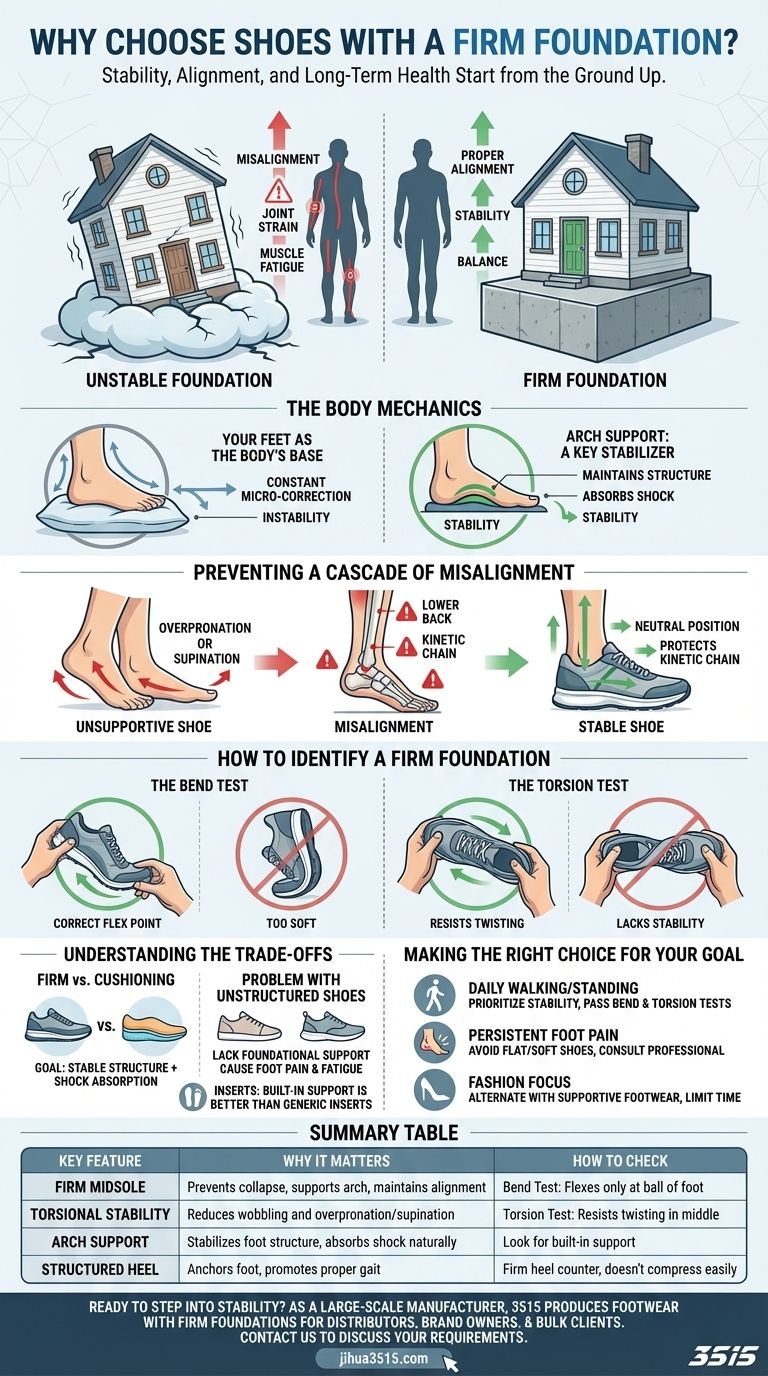
Related Products
- Premium KPU Athletic Safety Shoes for Wholesale
- Premium Lightweight Safety Shoes for Wholesale & Bulk Orders
- Custom Safety Shoe Manufacturer for Wholesale & OEM Brands
- Wholesale Breathable Training Shoes Custom Athletic Footwear Manufacturer
- Durable Rubber-Soled Utility Shoes for Wholesale & Custom Brand Manufacturing
People Also Ask
- What is the main purpose of tibial accelerometers in footwear gait analysis? Essential Tools for Impact & Stability
- What should you consider when fitting motorcycle boots? A Guide to Optimal Fit, Safety, and Comfort
- What are the roles of high-precision filter paper and nylon membranes in heavy metal detection? Guard Your AAS Equipment
- What occasions are Sandals suitable for? A Guide to Wearing Them Right
- How does eye-tracking technology contribute to the emotional evaluation of footwear? Data-Driven Design Insights
- How does the mirror software function improve production efficiency in automated shoe polishing? Halve Setup Time Now
- Why is the integration of stability features and impact absorption necessary? Enhance Safety and Gait Consistency
- What are the advantages of arch support structures in orthopedic insoles? Prevent Diabetic Foot Collapse and Rotation
